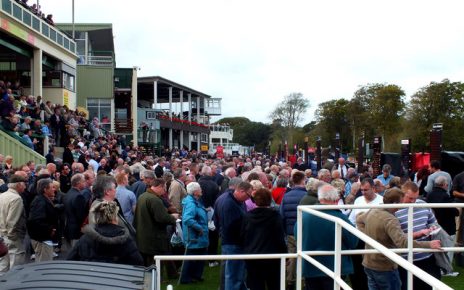As parts of the world go into panic because of the latest Coronavirus epidemic, one large Spa town in the Cotswolds is running business as usual on its busiest week of the year.
The population of Cheltenham and surrounding area’s max out at just past the 100,000 person mark, but for one week of the year a quarter of a million people pile onto trains, into cars and in some cases, Helicopters to wear their finest tweed and highest heels at the pinnacle of jump racing at Prestbury Park.
Yesterday, the department of health tweeted:
Although these numbers may not look too lethal, the numbers are rising daily. Unfortunately later yesterday, a fourth death was sadly confirmed in the UK.
It was reported this week that the first case of Coronavirus in the Cheltenham area has been found.
The risk with letting the Cheltenham festival go ahead is more to do with the amount of people who will be coming from all over the world to this isolated event. Tens of thousands of people will be herded into small enclosures dotted around the grounds, then to bars and clubs afterwards in the town, all the while people are in extreme proximity to each other. These racegoers will then pile back out of Gloucestershire to their corners of the country spreading anything they may or may not have caught whilst there.
Another issue with The Cheltenham Festival is its general environment. Unless you have a spare £500+ to spend on a box ticket, your day is mostly composed of standing outside in the Tattersalls enclosure or in the few large Marquees dotted around the outer areas. In these outside areas, it is much harder to manage hygiene standards without trusting that people look after themselves. The odd hand sanitiser will be dotted around at every available place accompanied by as many warnings from the Department of Health and NHS as possible but there is no one to manage the standard of which people will clean and sanitise.
Foot and Mouth in 2001
In 2001 the Festival was cancelled due to an outbreak of foot-and-mouth disease in Britain. The meeting had initially been postponed to April, but when a case of the disease was confirmed locally, putting the racecourse within an exclusion zone, all racing had to be called off. It is reported that after the festival was cancelled in 2001, the organiser’s and local businesses lost over £100m after all refunds had been given and reservations cancelled. There has been no direct cases in the immediate area of the racecourse yet, however with over 250,000 people converging on the area in the next week, all it takes is 1.
The issues with cancelling sports events
Money. The reasoning behind almost all big public events is the income that organisations will generate afterwards. The Cheltenham festival organiser’s are set to make a huge £20m through ticket sales, hospitality, sponsorship and other income. They are offering only £4.3m in prize money over the week also. The festival also generates a huge £100m revenue for the wider Gloucestershire economy. This is mostly spent on accommodation, food and drink, betting and travel. It would mean a huge call would have to be made by the race organiser’s and the British government whether or not to cancel the races. It would have a detrimental effect on Cheltenham town, with many small business using the festival to bulk up their annual income. It is not only the festival that could be under threat, with the Italian Sports minister yesterday deciding to cancel the remainder of the Serie A Football league in hopes to contain the epidemic in Italy. But this huge call in Italy has meant the loss of Millions in revenue, plus all ticket refunds for upcoming games and season tickets. The same could happen at Cheltenham.
BBC Horse Racing Correspondent Cornelius Lysaght spoke to ParkLife Sport yesterday:
” This is the Cheltenham festival of course there are other things going on in the world we must be aware of those… there was lots of talk about extra loo’s and basins and hand gels but it is all systems go”
“There was Foot and mouth in 2001 and it didn’t happen”
“there will be a determination to be very British about it all and get on with it”
Important information
NHS helpline 111 has an online coronavirus service that can tell you if you need medical help and advise you what to do.
Use this service if:
- you think you might have coronavirus
- in the last 14 days you’ve been to a country or area with a high risk of coronavirus – see the NHS Coronavirus advice for travellers here.
- you’ve been in close contact with someone with Coronavirus
Use the 111 coronavirus serviceInformation:
Do not go to a GP surgery, pharmacy or hospital. Call 111 if you need to speak to someone.
